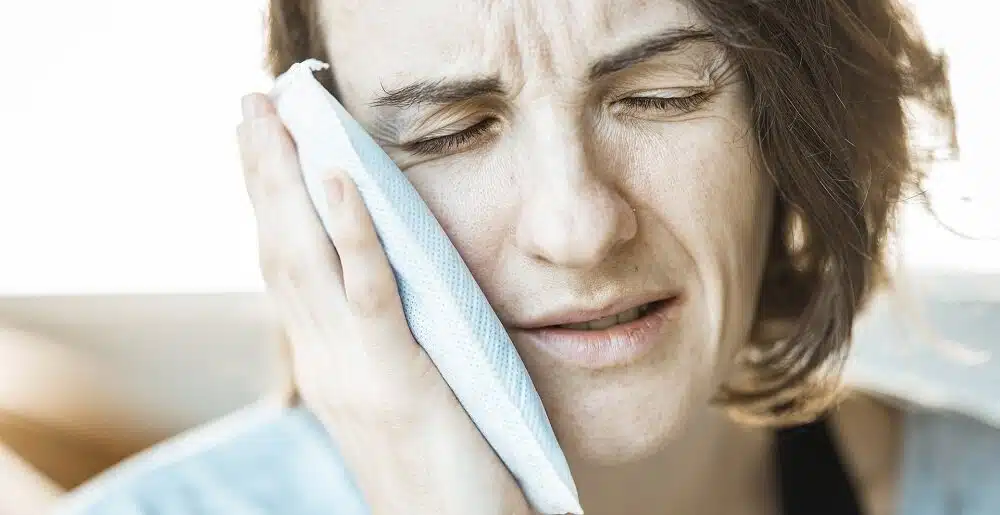Grinding your teeth at night, also known as bruxism, is a common sleep disorder. However, it often goes undiagnosed until significant dental damage occurs. If you suspect you may be grinding your teeth at night, view these symptoms and solutions. In most cases, your dentist can detect worn areas on your teeth that signal the presence of bruxism, so it’s important to make regular visits to save your teeth from extensive dental treatment.
Trident General Dentistry offers superior dental care in Charleston, SC. Book an appointment with us today!
Causes of Grinding Teeth at Night
The cause of teeth grinding is unique to each person, but is usually associated with stress. Other risk factors besides emotional stress include:
· Consumption of alcohol
· Use of tobacco products
· Anxiety disorders
· Consuming caffeine before sleep
· Highly-driven personality
· Family history of bruxism
· Misaligned bite
· Sleep apnea or other sleep disorder
· Certain medications
Symptoms You’re Grinding Your Teeth at Night
Bruxism while sleeping affects everyone differently, but some of the common symptoms include:
· Tooth pain
· Sore gums
· Chipped or loose teeth
· Teeth wearing down flat
· Pain in the face
· Tight, painful jaw and face muscles
· Jaw locking open
· Tongue indentations
· Clicking or popping noise when opening your mouth
· Injury to the inside of the cheek
· Headaches
· Limited jaw movement
Consequences of Grinding Teeth at Night
Your opposing teeth only touch each other less than 20 minutes each day during eating, swallowing, and sometimes during speaking. This minimal contact each day allows your teeth, gums, and surrounding bone to remain healthy. When teeth touch excessively, damage can occur.
Severe damage to your teeth can occur with nighttime grinding because they receive a significant amount of the powerful force generated by your jaws. If not treated, grinding your teeth at night can not only damage your natural teeth but also any fillings, crowns, or implants you have in your mouth.
The long-term dental effects of bruxing can result in the following:
· Loss of teeth. As teeth wear down, your bite can change significantly and make treatments such as dental crowns difficult if not possible.
· Costly treatment to restore and save your natural teeth.
· Temporomandibular joint (TMJ) pain and TMJ disorder. You can have mild to severe pain in this joint located in front of your ears. TMJ disorder caused by teeth grinding can also cause pain in the temples, neck, or shoulders.
· Osteoarthritis of the TMJ. Without proper management of teeth grinding, it can eventually contribute to osteoarthritis in this joint.
These types of complications make early intervention essential to preserve your teeth and oral health.
Solutions to Grinding Your Teeth at Night
Treating teeth grinding at night can include different methods and techniques, such as:
· Stress management. Since stress commonly contributes to teeth grinding, different techniques such as meditation, various relaxation techniques, or counseling may help prevent the problem.
· Nightguard. You can purchase night guards over the counter, but this is not recommended. A custom-made nightguard worn while you sleep can protect your teeth from the damage of grinding your teeth. It would be best if you regarded a night guard as an investment in your oral health to prevent costly dental procedures in the future.
· Bite correction. Interferences when closing your teeth together can contribute to grinding. Selectively reducing small amounts of enamel to improve your bite can help reduce the severity of bruxism. Sometimes, dental crowns can improve the bite and repair teeth damaged from grinding.
· Medications. Medications are used less, but occasionally muscle relaxers, anti-anxiety medications, and Botox have been used to treat some cases.
Make an Appointment Today
If you suspect you may be grinding your teeth at night, it’s important to be aware of these symptoms and solutions. Contact Trident General Dentistry to learn more about how we can help prevent the damages caused by grinding your teeth.

